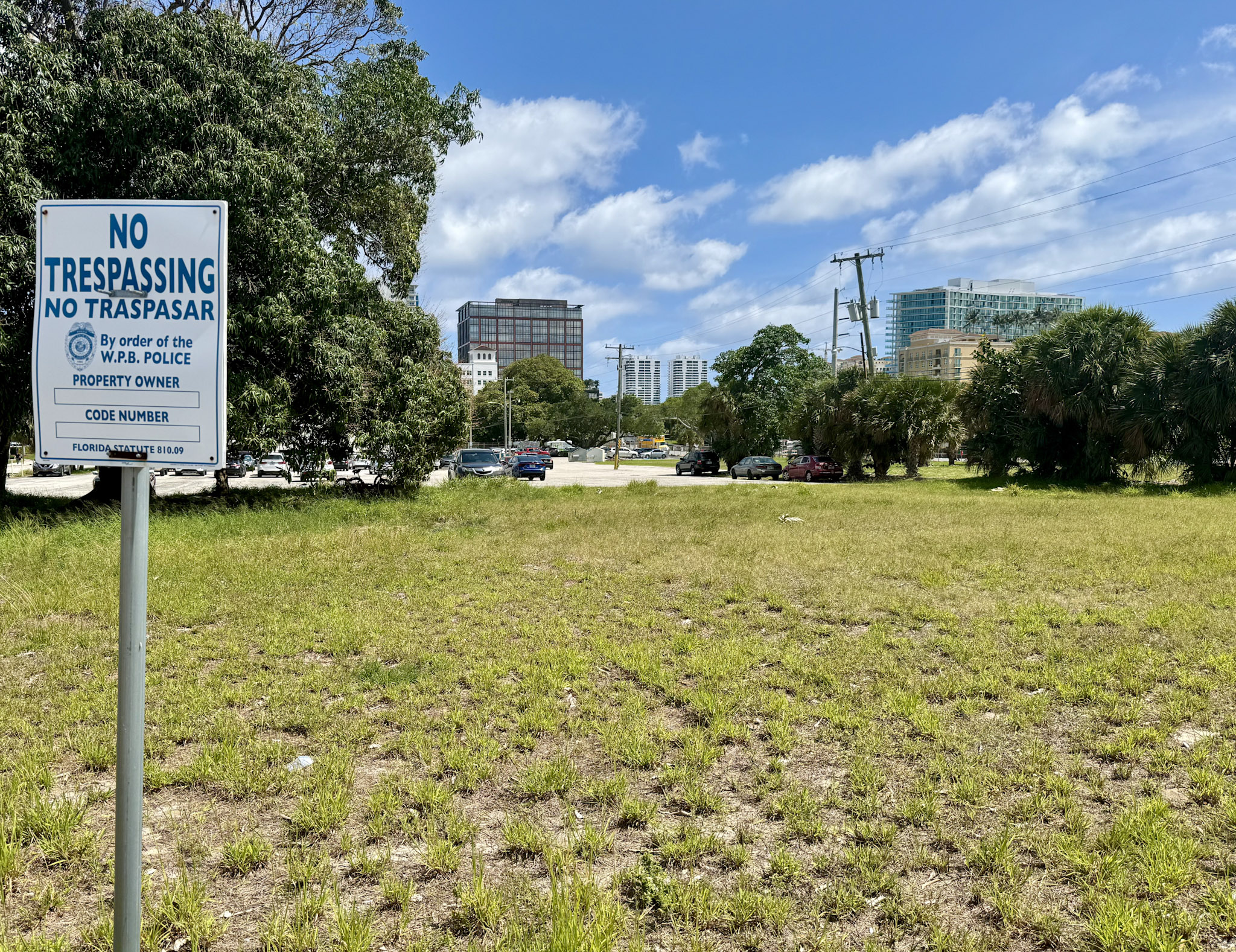Report on Urban Gentrification and Sustainable Development Challenges in Mexico City
Recent social unrest in Mexico City highlights a critical conflict between urban economic development strategies and the principles of the United Nations Sustainable Development Goals (SDGs). Protests against gentrification and the rising cost of living underscore the challenges in achieving inclusive, equitable, and sustainable urban environments, particularly in relation to SDG 10 (Reduced Inequalities) and SDG 11 (Sustainable Cities and Communities).
Analysis of Social Unrest and Stakeholder Positions
Protest Manifestations and Core Grievances
A mass protest in Mexico City voiced growing public anger over economic pressures linked to an influx of foreign remote workers and tourism. While the demonstration was largely peaceful, isolated incidents of vandalism and xenophobic language were reported. The core of the protest centered on the displacement of local residents due to soaring living costs, a direct challenge to ensuring sustainable and inclusive communities.
- Economic Disparity: Activist groups cite official data indicating a 286% rise in housing costs since 2005, contrasted with a 33% decrease in real wages over the same period. This trend directly undermines SDG 1 (No Poverty) and SDG 8 (Decent Work and Economic Growth) by increasing economic precarity for local populations.
- Activist Stance: Organizers, such as Frente Anti Gentrificación Mx, clarified that their campaign targets governmental policies and the “violence as a government model” that prioritizes capital over citizens, not migration itself, which they affirm as a human right.
Government and Corporate Responses
Official responses to the unrest have varied, reflecting the complex interplay of economic interests and social responsibilities.
- Government Condemnation of Xenophobia: Mexican President Claudia Sheinbaum condemned any acts of discrimination, racism, or xenophobia, reaffirming the principle of equality, which aligns with the foundational tenets of SDG 10 (Reduced Inequalities).
- Corporate Justification: Airbnb defended its role, stating it generated over $1 billion for the local economy and serves as a financial lifeline for hosts. This position frames the platform as a contributor to SDG 8, though critics argue this growth is not equitable and exacerbates the housing crisis, conflicting with SDG 11.
Gentrification’s Impact on Sustainable Development Goals
SDG 11: Sustainable Cities and Communities
The situation in Mexico City brings Target 11.1—ensuring access for all to adequate, safe, and affordable housing—into sharp focus. The gentrification process, accelerated by digital platforms, directly threatens this objective.
- Housing Displacement: Thousands of residents have reportedly been forced from their homes in central neighborhoods like Roma and Condesa as properties are converted to more profitable short-term rentals.
- Policy Conflicts: A 2022 agreement between the Mexico City government, Airbnb, and UNESCO to promote the capital as a “global hub for digital nomads” is viewed by activists as an institutional policy that prioritizes tourism-related economic growth over the housing security of its permanent residents, creating a fundamental tension with the goals of SDG 11.
SDG 10: Reduced Inequalities
Gentrification is fundamentally a process rooted in and exacerbated by inequality. Experts note that the phenomenon is driven by disparities in purchasing power, allowing wealthier individuals and entities to displace lower-income communities.
- Systemic Causes: Experts identify the root causes not merely as migration, but as long-standing issues of socio-economic inequality, inadequate housing policies, and land privatization.
- Accelerating Factors: The post-2020 rise of remote work and the proliferation of short-term rental platforms have “turbo-charged” these pre-existing inequalities, making sustainable and equitable urban living increasingly unattainable for many.
Global Context and Future Outlook
A Global Challenge to Urban Sustainability
The challenges faced by Mexico City are not unique but reflect a global trend impacting urban centers worldwide. Cities are increasingly forced to confront the negative externalities of overtourism and unregulated real estate speculation on their ability to function as sustainable communities.
- International Policy Responses: Tourist destinations from Lisbon to Berlin have implemented restrictions on short-term rentals. Notably, Barcelona’s government has announced it will eliminate all licenses for short-term tourist apartments by 2028 to address its housing crisis and advance its commitment to urban sustainability.
- Regulatory Shortfalls: In Mexico City, where Airbnb has over 26,500 listings concentrated in gentrifying areas, regulations introduced in response to criticism are considered insufficient by experts to mitigate the displacement of residents.
Conclusion
The ongoing situation in Mexico City serves as a critical case study on the tensions between economic models focused on attracting foreign capital and the imperative to build sustainable, inclusive, and equitable cities as envisioned by the SDGs. Activists express significant concern that upcoming international events, such as the 2026 World Cup, will further prioritize commercial interests over the housing rights and well-being of residents, posing a significant future challenge to the region’s sustainable development trajectory.
Analysis of Sustainable Development Goals in the Article
1. Which SDGs are addressed or connected to the issues highlighted in the article?
-
SDG 10: Reduced Inequalities
- The article directly addresses inequality as a root cause of the protests. It highlights the “growing anger about inequality in the Mexican capital” and quotes an activist group stating that gentrification is based on “differential treatment to those with greater purchasing power.” The disparity between rising housing costs and falling wages is a clear example of growing economic inequality. Furthermore, the mention of “xenophobia” and “classism” directly relates to reducing inequalities based on origin and economic status.
-
SDG 11: Sustainable Cities and Communities
- The central theme of the article is gentrification in Mexico City, a major urban issue. It focuses on the lack of affordable housing, the displacement of residents (“thousands of people… have been forced out of their homes”), and the impact of short-term rentals on residential communities. The protests are a reaction to unsustainable urban development that prioritizes tourism and foreign investment over the housing needs of local citizens, directly connecting to the goal of making cities inclusive, safe, resilient, and sustainable.
-
SDG 8: Decent Work and Economic Growth
- The article touches upon the economic aspects of tourism and housing. It mentions that “real wages have decreased by 33%,” which relates to the goal of achieving decent work. It also presents the argument for tourism’s economic benefits, such as Airbnb helping to “generate more than $1 billion in the local economy.” However, it contrasts this with the negative social consequences, raising questions about the sustainability of this economic model (Target 8.9 on sustainable tourism).
-
SDG 16: Peace, Justice and Strong Institutions
- The article describes protests demanding “reforms from the government” to address the housing crisis. This points to a need for stronger, more responsive, and just institutions. The Mexican President’s public condemnation of “discrimination, racism, classism, and xenophobia” also aligns with this goal’s aim to promote peaceful and inclusive societies and build effective, accountable institutions at all levels.
2. What specific targets under those SDGs can be identified based on the article’s content?
-
Under SDG 10 (Reduced Inequalities):
- Target 10.2: “By 2030, empower and promote the social, economic and political inclusion of all, irrespective of… origin… or economic or other status.” The article highlights the economic exclusion of local residents who are priced out of their homes due to an influx of people with “greater purchasing power.” The protests are a demand for the inclusion of long-term residents in the city’s future.
- Target 10.3: “Ensure equal opportunity and reduce inequalities of outcome, including by eliminating discriminatory… policies and practices.” The protesters’ demand for government reforms reflects a call to change policies that have led to unequal outcomes, where housing becomes unaffordable for the local population.
- Target 10.7: “Facilitate orderly, safe, regular and responsible migration and mobility of people, including through the implementation of planned and well-managed migration policies.” The article discusses the influx of “digital nomads” and foreigners, and the subsequent social friction, highlighting a need for better-managed policies to mitigate negative impacts on host communities.
-
Under SDG 11 (Sustainable Cities and Communities):
- Target 11.1: “By 2030, ensure access for all to adequate, safe and affordable housing.” This is the central issue of the article. The text explicitly states that “housing costs have risen 286% since 2005” while wages have fallen, and that “thousands of people… have been forced out of their homes,” directly showing a failure to provide affordable and adequate housing.
- Target 11.3: “By 2030, enhance inclusive and sustainable urbanization and capacity for participatory, integrated and sustainable human settlement planning and management.” The agreement between the city government and Airbnb, which exacerbated gentrification, is presented as an example of non-inclusive and unsustainable planning. The protests are a form of citizen participation demanding a more sustainable approach.
-
Under SDG 8 (Decent Work and Economic Growth):
- Target 8.9: “By 2030, devise and implement policies to promote sustainable tourism that creates jobs and promotes local culture and products.” The article discusses the conflict between the economic benefits of tourism (e.g., Airbnb’s $1 billion contribution) and its negative social impact (displacement), a key challenge in achieving sustainable tourism.
-
Under SDG 16 (Peace, Justice and Strong Institutions):
- Target 16.b: “Promote and enforce non-discriminatory laws and policies for sustainable development.” The President’s statement against xenophobia and classism, and the activists’ fight against policies that create “differential treatment,” are directly related to the promotion of non-discriminatory policies for sustainable urban development.
3. Are there any indicators mentioned or implied in the article that can be used to measure progress towards the identified targets?
-
Indicators for Housing Affordability (Target 11.1):
- Housing Cost Index: The article provides a specific data point: “housing costs have risen 286% since 2005.”
- Ratio of Housing Cost to Income: The combination of rising housing costs (286%) and decreasing “real wages… by 33%” serves as a powerful indicator of declining housing affordability.
- Forced Evictions/Displacement Rate: The statement that “thousands of people in the Mexican capital have been forced out of their homes” is a qualitative indicator of the lack of secure and affordable housing.
-
Indicators for Tourism’s Impact on Housing (Targets 11.1 & 8.9):
- Number of Short-Term Rental Listings: The article specifies that “Airbnb has over 26,500 listings” in Mexico City and that Barcelona plans to scrap the licenses of “10,101 apartments.” This number can be tracked as an indicator of pressure on the local housing market.
-
Indicators for Migration (Target 10.7):
- Number of Residency Permits: The article states that “122,758 temporary residency permits were granted to foreigners for Mexico” in 2022, an increase from “97,825 in 2019,” providing a clear metric for the scale of migration.
-
Indicators for Economic Impact (Target 8.9):
- Economic Contribution of Tourism: Airbnb’s claim that it “helped generate more than $1 billion in the local economy last year” is a direct economic indicator.
- Income from Home Sharing: The fact that “53% of its hosts saying the service helped them stay in their homes” is an indicator of how tourism revenue is distributed and its role in household economies.
4. Summary Table of SDGs, Targets, and Indicators
| SDGs | Targets | Indicators |
|---|---|---|
| SDG 10: Reduced Inequalities |
10.2: Promote social and economic inclusion.
10.7: Facilitate orderly and responsible migration. |
– Disparity between the 286% rise in housing costs and the 33% decrease in real wages. – Mention of “differential treatment to those with greater purchasing power.” – Increase in temporary residency permits granted to foreigners (from 97,825 in 2019 to 122,758 in 2022). |
| SDG 11: Sustainable Cities and Communities |
11.1: Ensure access to adequate and affordable housing.
11.3: Enhance inclusive and sustainable urbanization. |
– “housing costs have risen 286% since 2005.” – “thousands of people… have been forced out of their homes.” – Number of short-term rental listings (“over 26,500” in Mexico City). – Government agreements with platforms like Airbnb without sufficient regulation for residents. |
| SDG 8: Decent Work and Economic Growth | 8.9: Promote sustainable tourism. |
– Economic contribution of tourism platforms (“$1 billion in the local economy”). – “real wages have decreased by 33%.” – Percentage of hosts relying on rental income to afford housing (53%) or cover expenses (74%). |
| SDG 16: Peace, Justice and Strong Institutions | 16.b: Promote and enforce non-discriminatory laws and policies. |
– Public condemnation of “discrimination, racism, classism, [and] xenophobia” by the President. – Protests demanding government reforms and fair housing policies. |
Source: cnn.com







